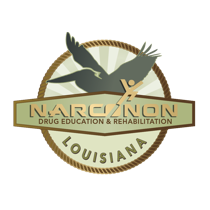Dealing With Feelings of Guilt

Addiction has a lasting effect on both the addict and their family. One of the hardest parts of the healing process is dealing with things that occurred in the past. Families of addicts may hold on to guilt from what has happened during the time of trying to help their loved one recover from addiction. I have spent years working with addicts and their families heal the scars left behind by the horrors of addiction. Dealing with a loved one struggling with addiction can be as trying and damaging as being addicted to yourself. It flips everything you believe on its head and makes you look at life in a way you may never have had to before.
I have brought up many times the importance of forgiveness when an addict begins their journey into recovery. I do, however, understand this is easier said than done especially since this process takes a considerable amount of cooperation from both the addict and their families to move forward. The first step for the addict and the family is to acknowledge and discuss that earning the family’s trust back will take time and work.
Setting up what the guidelines will be when moving forward is a crucial step. This will include what is expected of the addict and of the family. It should cover such things as letting the family know what the addict is doing at any given time, where they are spending their money, and what goals they are working towards. On the family’s part, this may consist of being understanding and not throwing the past in the addict’s face. This is one of the biggest mistakes I see families make during this process. They want to bring up the past regularly to guilt the addict, in an attempt to get them to change their behavior. The problem with this approach is it can push the addict in the wrong direction, away from cooperation possibly increasing their stress level and making them less likely to share their struggles with the others.
Addressing the guilt and resentment on both sides will significantly ease this transition. I would suggest this step is done in a supervised setting with a trained professional or someone who will remain calm if an upset is caused. Ideally, this should be done before the addict leaves treatment. Both the addict and the family member should take the time to sit down, take responsibility for what may have happened in the past, mutually agreeing that once this is done, they will genuinely forgive each other and leave it in the past.
Understandably, family members often feel they have never done anything wrong. However, if there are things the addict blames you for, hear them out and show them you hear them. This is essential, even if your past actions were done with the best intention.
Here is a common example; an addict is upset with the family for kicking them out of the house. The family member does not need to apologize since there were justifiable reasons they resorted to kicking the addict out. Instead of reiterating they think it was the right thing to do, they could say they understand that it might not have been the best thing at the time or there might have been a better way to handle it. This keeps the addict and their family continuing to communicate through the difficulty, as opposed to shutting either party off and ceasing to talk.
Keep in mind this is not a battle of who is the guiltiest or the most wrong, it is a way for both parties to start on the road to forgiveness and moving forward instead of being stuck in the past. This is best to do this when your loved one is still in treatment.
I hope this helps you and your loved one move on to a better future together.
